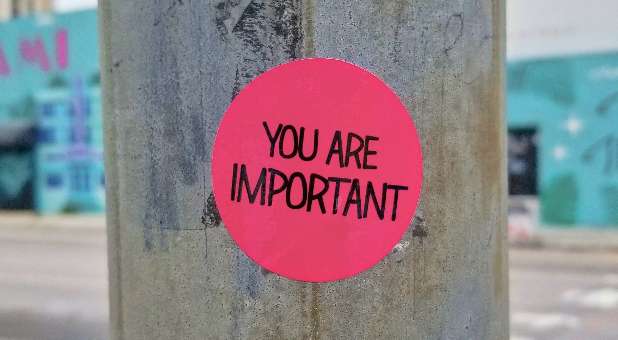The journey of everyday justice begins internally before it is lived externally. If words create thoughts, which are manifested in actions, we can rewrite our internal narratives as we confront every thought that would lessen the value of a human being in any way. Once we align our beliefs with justice — power used for good — it will become our automatic pattern of thought. This new way of thinking will be revealed by all that we do and with everyone that we meet.
Firstly, we will never truly value others until we are able to see value in ourselves. My childhood experiences of abuse left me believing lies about my worth. “I’m not good enough.” “I’m damaged goods.” Everyone, especially men, were potential perpetrators. Everyone was out to take advantage of me so, “I better step on them before they step on me.” The darkness of these and other lies that I believed about myself were my greatest enemy.
When I remember my emotional torment and the continuous, self-sabotaging choices I made, empathy now bursts inside of me for others. I have an experiential knowledge that reveals that others have their own untold stories of pain and suffering. How could I judge someone harshly when I was that one? How can I condemn, expose and belittle them when I walked a comparable path?
I stand in awe of how one validating and healing truth upon another progressively saturated my way of thinking, believing and acting. Emotional health began to flourish as walls came down and healthy boundaries were built. Self-protective fear was dismantled, granting access to the innate ability to love and value another.
Everyday justice begins with your own internal dialogue. Every validating discovery is a victory won that will be reproduced in your spheres of influence. The ability to see your value allows you to generate value in others. Everyday justice is as simple as looking into a stranger’s eyes and acknowledging him or her with a smile and an honoring nod of the head as you walk by. Complimenting the cashier, holding the door open for someone, writing a note with a good tip on a restaurant receipt and so forth are simple acts of everyday justice — your power used for good.
This also translates into the home. The proving ground for everyday justice is at home where we let our guard down. How do we respond to our children when their rooms are messes, when they fail a test or they throw a temper tantrum? How do we respond to our spouses when they cannot read our minds, knowing exactly what we need? How do we respond when inconvenienced by those closest to us?
Our words and actions hold the power to heal and build worth. Everyday justice is telling your family that you love them and are proud of them. It is supporting them when they fail and face challenges, instructing them in perseverance. It is recognizing that you are the voice of authority that can affirm their value.
When our private world and family culture is established in everyday justice, we will become a powerful influence in our workplace, our community and even our nation. You do not need a title or position to have a voice of influence in your workplace. You will be one who bridges the divides with your lifestyle of everyday justice. The ground between our differences is the place of strategic solutions when navigated with respect. That is everyday justice!
For a full conversation on this topic, listen to this episode of the Life Exchange podcast here. {eoa}
Dr. Melodye Hilton is the co-host of the Life Exchange Podcast. Melodye works with individuals and workgroups around the globe as a leadership consultant, behavioral analyst and executive coach. (drmelodye.com) For over 38 years, she and her husband, Steven, have served as the founders and co-leaders of Giving Light, a local church and global resource center located in the heart of central Pennsylvania. In addition, Dr. Melodye has founded the #StopDevaluation movement in an effort to see hearts and cultures healed through love and validation (stopdevaluaion.com).












































